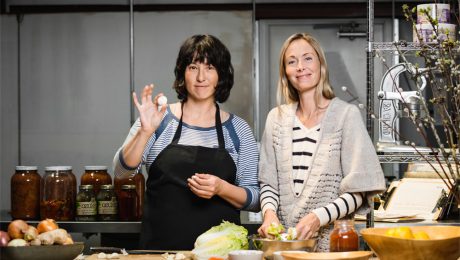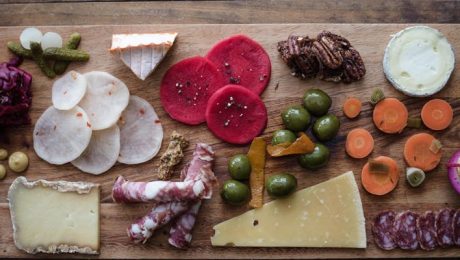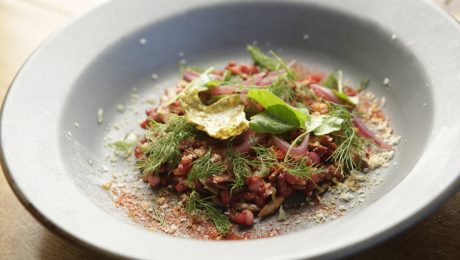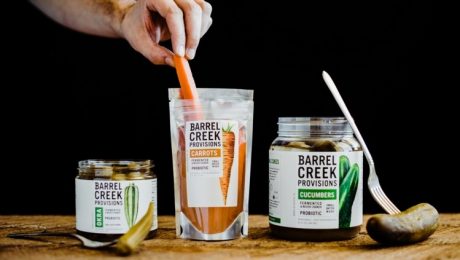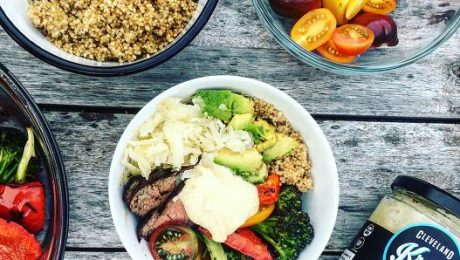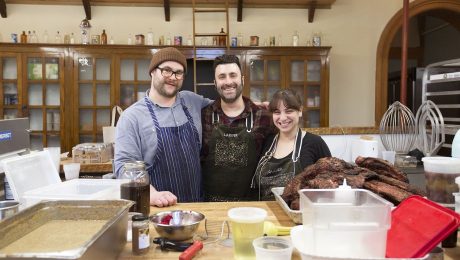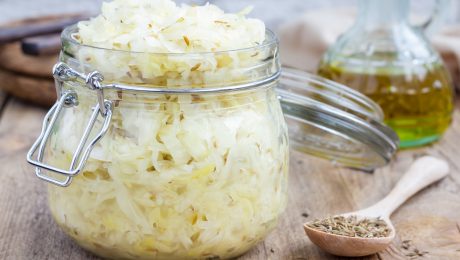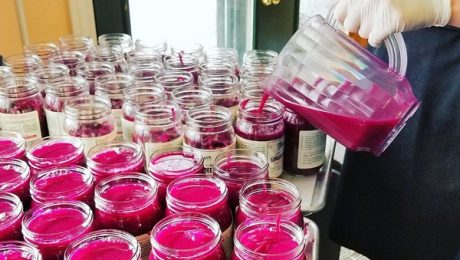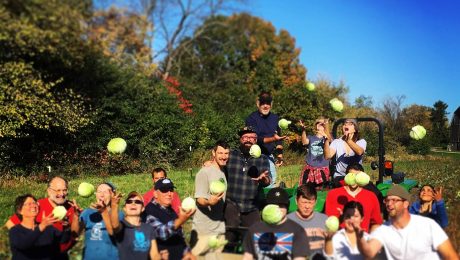Ozukè Founder: Fermentation Will Change Diet & Planet
Blending ancestral kitchen traditions and new scientific research will allow fermentation to change our diet — and our planet.
In a TEDx Talk, Mara King, co-founder of fermented food store Ozukè, shares why she is proudly releasing trillions of good bacteria into the population. Her food philosophy rubs against everything the Food and Drug Administration and state health departments practice. While government agencies enforce strict sanitation standards in the name of protecting American’s food, King preaches that it’s wiping out good bacteria and dumping more toxins into the environment.
When King and co-founder Willow King (no relation) opened their Colorado-based food business, a food scientist from the Denver office of the Health & Human Services Department performed a safety inspection. The food expert was confused by Ozukè’s live, fermented pickles, sauerkraut and kimchi. King: “He said ‘Your product is so weird. We follow all these FDA guidelines in food manufacturing in order to diminish bacteria and here you are making it on purpose.’”
“The food we make is actually super, super, super safe, unlike mots processed packaged fresh foods,” King says. “The reason this food is so safe is not because I’m better at this antimicrobial Macarena than anybody else. It’s because the bacteria are doing the work of making the fermented foods pretty much bomb proof.”
Though numerous cultures have been fermenting for generations (“It’s how humans have been eating raw, crunchy vegetables all through hard winters.”), King notes it’s only in the last 10 years that scientists have been able to map the complex fermentation process. By letting bacteria thrive in its own ecosystem, it “creates a food that’s no longer harmful to humans” and makes a more nutritious product.
“Nature does not operate in a vacuum and neither should we,” King says. “We need to understand the complexity of the world in which we live, then we can start to come up with solutions that do honor our heritage.”
King, who great up in Hong Kong, says older Chinese women store an impressive knowledge of food and medicine. Merging ancient tradition with new science is what will create the living solutions needed to continue living on our planet.
“In fermentation, we have a little trick that we use which is called using a started culture or a mother. I believe that our starter culture…is our human cultural history,” King says. “Once we start tapping this information…we’ll start to come up with amazing solutions, solutions that grow, solutions that rot, solutions that breath.”
Today Ozuke (which means “the best pickled things” in Japanese) still makes pickled veggies, but also teaches fermentation workshops. For more information, visit their webpage.
- Published in Food & Flavor, Health
GYST – Fermented Food & Drink Bar – Researching Health Benefits of Lacto-Fermented Foods
Fermented food and drink bar GYST is expanding locations, workshops — and research. The Minneapolis-based company is teaming up with University of Minnesota Food Science and Nutrition Department to study the health benefits of a consistent diet of lacto-fermented foods. GYST will study topics like: will the health of soil produce better fermented foods, does organic produce create better fermentation and do different vegetables produce different bacteria.
Read more (City Pages)
Fermentation Dominating 2019 Food Prediction Lists
Fermentation is dominating 2019 food prediction lists. The New York Times says fermented foods and fermented drinks will rule in 2019. The year’s flavor profile will be “Sour and funky, with shades of heat,” melding fermented ingredients with millennial taste buds. Probiotics and prebiotics will continue to reign as consumers focus on gut health. “As the obsession with digestive health dovetails with the fascination for fermenting, kimchi, sauerkraut and pickled things will work their way into new territory. Smoothies with kefir will be popular, and kombucha will show up in unexpected places like salad dressings,” the article continues. What will you be eating in 2019?
Read more (New York Times)
- Published in Business
Probiotics Build Stronger Bones
Probiotics are good for the bones, a new study finds. Older women who took probiotics had less bone weakening than women who did not take probiotics. Fermented foods rich in probiotics include pickled veggies (sauerkraut, pickles, kimchi), yogurt, kefir, kvass and natto.
Read more (New York Times)
- Published in Science
Barrel Creek Provisions breathes new life into fermented foods
- Published in Business
Kraft Partners with Cleveland Kraut
A sign that fermented foods are going mainstream – food co. Kraft Heinz is partnering with Cleveland Kraut, a startup brand Kraft identified as an innovative health food that is helping to shape the future of snacking. Brothers Drew & Luke create unique kraut flavors for their Cleveland Kraut label, like Whisky Dill, Curry Kraut & Classic Caraway.
Read more (CNBC)
- Published in Business
An Old-School Deli from a Fermentation Expert Opens in Cleveland
Fermentation guru and chef Jeremy Umansky is opening a restaurant that takes a modern twist on an old-world, Jewish-style deli. Larder: A Curated Delicatessen & Bakery in Cleveland serves fermented favorites like sauerkraut, pickles, giardiniera, pickled smelt, pickled radishes and fermented cabbage leaves.
- Published in Food & Flavor
Sour Power: How Germans are taking back sauerkraut
Sauerkraut is making a comeback in the country of its birth, Germany. Thanks to the gut health trend and food writer Cathrin Brandes (German author of “Fermentieren”), Germans are reclaiming their national dish. Dubbed the Kraut Braut, which translates to “the Kraut Bride,” Brandes now teaches kraut making courses.
- Published in Food & Flavor
Central NY couple’s tiny ‘Food and Ferments’ biz wins national food award
Food & Ferments is making headlines for their 1st place prize for their Hearts on Fire flavored kraut in the national Good Food Awards.Dave and Carly Dougherty run the Central NY biz and make sauerkrauts, kimchi, kvass and tonics.
- Published in Uncategorized
From the Farm: A love note to sauerkraut
Love letter to sauerkraut. A columnist for the Record Eagle in Michigan praises the fermented cabbage as having “a world of uses” outside of condiments, like used as an acid in dishes in the place of vinegar and lemon. Local MI producer The Brinery is listed as a favorite.
- Published in Uncategorized

